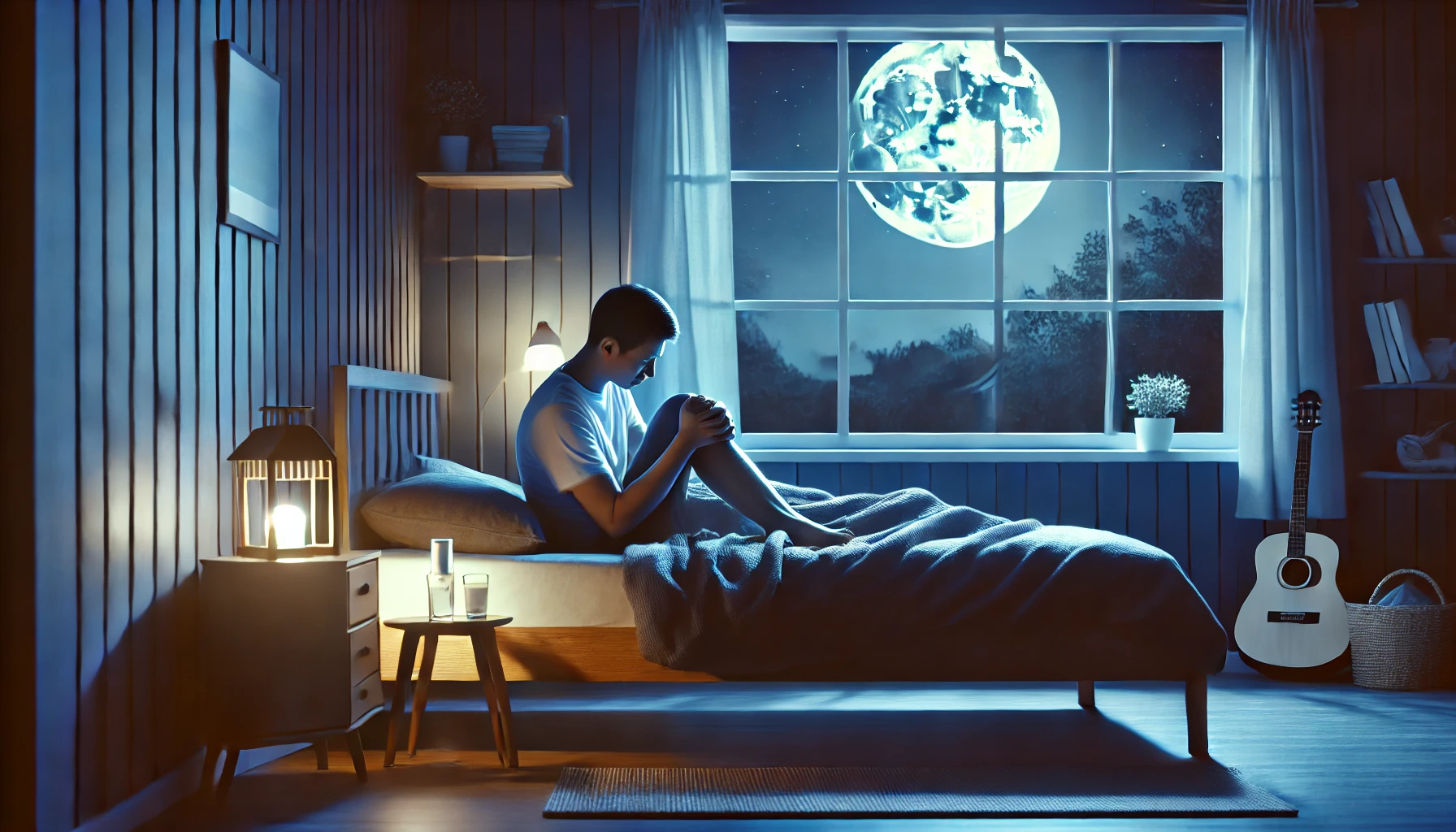If you’ve ever struggled with aching knees at night, you know how frustrating it can be. You settle into bed after a long day, only to be kept awake by throbbing, aching pain in your knees. As someone who has researched and worked with patients dealing with knee pain, I understand the need for answers—and solutions.
In this article, I’ll explore why knee pain worsens at night, what conditions might be causing it, and the best ways to get relief so you can sleep peacefully.
Why Do My Knees Ache More at Night?

Knee pain often feels worse at night due to several factors:
✔️ Less Movement: During the day, movement helps keep the joints lubricated, but at night, reduced activity can cause stiffness and discomfort.
✔️ Inflammation Peaks: Inflammatory conditions like arthritis tend to flare up at night when the body is at rest.
✔️ Circulation Changes: Lying down alters blood flow, which can increase swelling and pain in the knees.
✔️ Daytime Strain: The stress and strain from walking, standing, or exercising all day may accumulate, leading to discomfort when you finally rest.
Now, let’s explore the most common causes behind aching knees at night.
Common Causes of Nighttime Knee Pain
1. Osteoarthritis (OA)
Osteoarthritis is one of the leading causes of knee pain at night. It occurs when the cartilage in the knee joint wears down, leading to pain, stiffness, and inflammation.
Symptoms:
🔹 Pain worsens after activity and at night
🔹 Stiffness in the morning or after resting
🔹 Swelling around the knee
✔️ Solution: Low-impact exercise, weight management, and anti-inflammatory medications can help manage OA symptoms.
2. Rheumatoid Arthritis (RA)
Unlike osteoarthritis, rheumatoid arthritis is an autoimmune disease where the body’s immune system attacks the joints, causing inflammation and pain.
Symptoms:
🔹 Pain and swelling in both knees
🔹 Warmth and redness in the joint
🔹 Stiffness lasting more than 30 minutes in the morning
✔️ Solution: Anti-inflammatory medications, immune-modulating drugs, and physical therapy can provide relief.
3. Bursitis
Bursitis occurs when the fluid-filled sacs (bursae) that cushion the knee joint become inflamed. This can happen due to repetitive movements, kneeling, or overuse.
Symptoms:
🔹 Aching pain that worsens at night
🔹 Swelling and tenderness around the knee
🔹 Increased pain with movement
✔️ Solution: Rest, ice therapy, and anti-inflammatory medications help reduce bursitis symptoms.
4. Patellofemoral Pain Syndrome (Runner’s Knee)
Runner’s knee is caused by irritation of the cartilage beneath the kneecap, often due to improper knee alignment or overuse.
Symptoms:
🔹 Dull, aching pain behind or around the kneecap
🔹 Pain worsens after long periods of sitting or at night
🔹 Knee “cracking” or grinding sensations
✔️ Solution: Strengthening exercises, proper footwear, and knee braces can improve symptoms.
Also Read: Ztec100.Com Tech Health And Insurance – The Future of Digital Well-being!
5. Tendinitis
Tendinitis is inflammation of the tendons connecting the muscles to the knee. It’s common in athletes or individuals who engage in repetitive knee movements.
Symptoms:
🔹 Sharp pain in the front or sides of the knee
🔹 Worse pain at night or after physical activity
🔹 Stiffness in the morning
✔️ Solution: Rest, ice, stretching, and physical therapy can help reduce inflammation.
6. Restless Leg Syndrome (RLS)
RLS is a neurological condition that causes uncomfortable sensations in the legs, often worsening at night.
Symptoms:
🔹 An urge to move the legs, especially at night
🔹 Aching or tingling sensations in the knees
🔹 Disrupted sleep due to leg discomfort
✔️ Solution: Stretching, warm baths, and magnesium supplements may help ease symptoms.
How to Relieve Aching Knees at Night
If knee pain is keeping you up at night, try these effective relief methods:
1. Apply Ice or Heat
❄️ Ice packs reduce swelling and numb pain.
🔥 Heat therapy relaxes stiff muscles and improves circulation.
Use ice for inflammation and heat for stiffness before bed.
2. Elevate Your Legs
Keeping your knees slightly elevated with a pillow helps reduce swelling and improves circulation while you sleep.
3. Use a Knee Pillow
A knee pillow between your legs (for side sleepers) helps maintain proper alignment and reduces pressure on the joints.
4. Take Over-the-Counter Pain Relievers
NSAIDs like ibuprofen (Advil) or naproxen (Aleve) can help reduce pain and inflammation before bedtime.
5. Try Gentle Stretches Before Bed

Simple knee stretching and strengthening exercises improve flexibility and reduce nighttime discomfort.
Example: Straight-leg raises, hamstring stretches, and quadriceps stretches.
6. Maintain a Healthy Weight
Excess weight puts extra pressure on the knees, worsening pain at night. Losing even a few pounds can significantly reduce joint stress.
7. Adjust Your Sleeping Position
Sleeping on your back with a pillow under your knees or on your side with a pillow between your legs helps relieve pressure on the joints.
When Should You See a Doctor?
Consult a doctor if you experience:
✔️ Persistent pain despite home remedies
✔️ Severe swelling, redness, or warmth around the knee
✔️ Difficulty walking or bearing weight
✔️ Knee locking or giving out
A healthcare provider can recommend physical therapy, medications, or even surgical options if necessary.
FAQ’s
1. Why do my knees hurt more at night?
Knee pain worsens at night due to reduced movement, inflammation buildup, and circulation changes. Conditions like arthritis, bursitis, or overuse injuries can also contribute to nighttime discomfort.
2. How can I relieve knee pain before bed?
Try icing or heating the knee, using a pillow for support, stretching, and taking OTC pain relievers. Elevating your legs can also help reduce swelling.
3. What sleeping position is best for knee pain?
Sleeping on your back with a pillow under your knees or on your side with a pillow between your legs helps relieve pressure and improve alignment.
4. When should I see a doctor for nighttime knee pain?
Consult a doctor if you have severe swelling, redness, difficulty walking, or persistent pain that doesn’t improve with home treatments.
5. Can weight affect knee pain at night?
Yes! Excess weight puts extra strain on the knee joints, worsening pain. Losing even a small amount of weight can help relieve discomfort.
Final Thoughts
Aching knees at night can disrupt your sleep and affect your daily life, but understanding the cause and finding the right treatment can make a big difference. Whether your pain is due to arthritis, bursitis, or overuse, there are effective strategies to manage discomfort and sleep better. If the pain persists, consulting a doctor can help you find long-term relief. Prioritize your knee health, and don’t let nighttime pain hold you back!
Related Post
- Zimatejigemo – Unlocking the Fusion of Creativity, Identity, and Innovation!
- Tinaypimatelate – The Revolutionary Concept Shaping the Future of Innovation!
- Limhuloxidpov – A Complete Guide to Understanding This Unique Concept!
- Zaxtexporoz – Exploring the Emerging Concept of Innovation and Digital Transformation!
- Lekulent – The Breakthrough Wellness Solution Taking the Health World by Storm!






